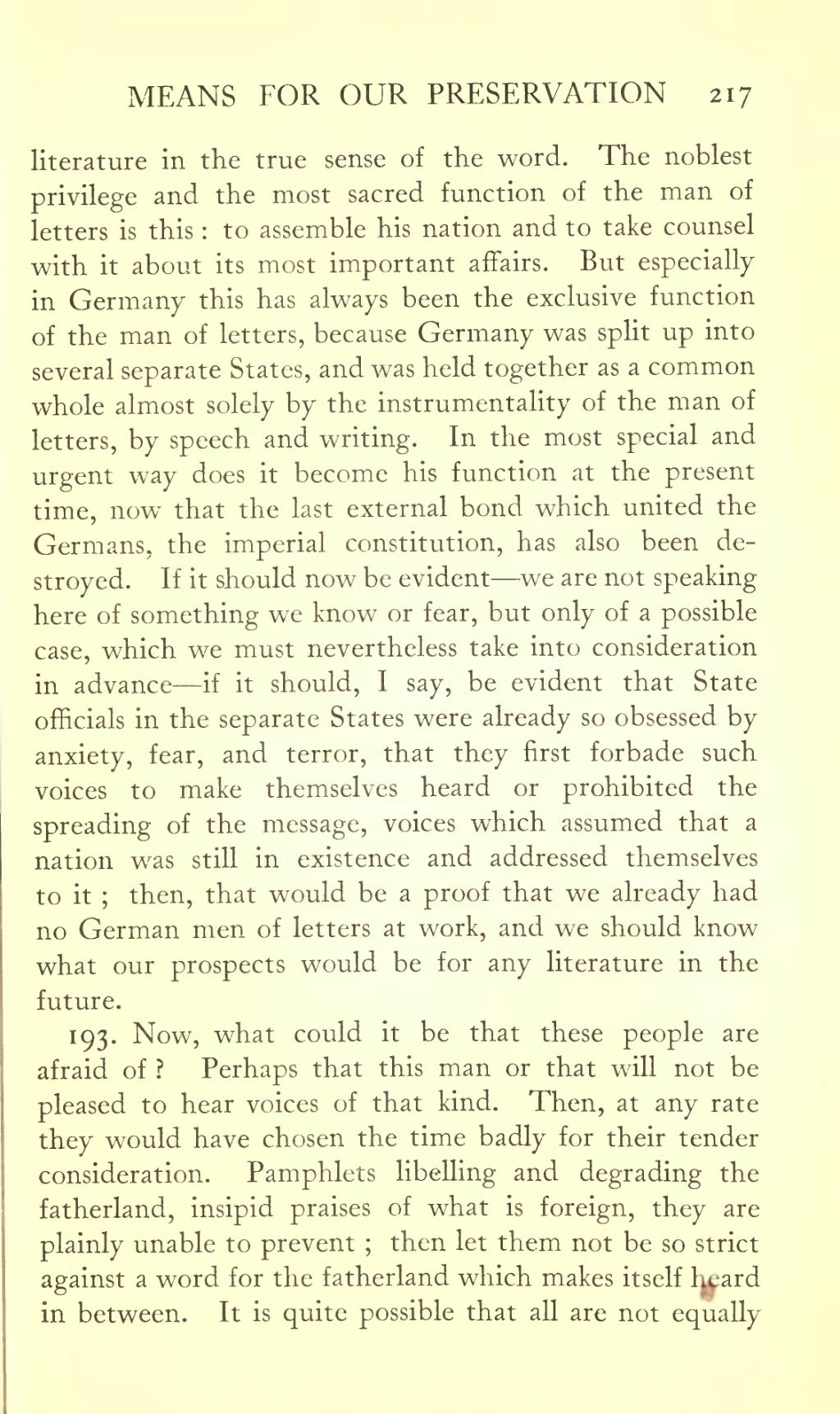literature in the true sense of the word. The noblest privilege and the most sacred function of the man of letters is this: to assemble his nation and to take counsel with it about its most important affairs. But especially in Germany this has always been the exclusive function of the man of letters, because Germany was split up into several separate States, and was held together as a common whole almost solely by the instrumentality of the man of letters, by speech and writing. In the most special and urgent way does it become his function at the present time, now that the last external bond which united the Germans, the imperial constitution, has also been destroyed. If it should now be evident—we are not speaking here of something we know or fear, but only of a possible case, which we must nevertheless take into consideration in advance—if it should, I say, be evident that State officials in the separate States were already so obsessed by anxiety, fear, and terror, that they first forbade such voices to make themselves heard or prohibited the spreading of the message, voices which assumed that a nation was still in existence and addressed themselves to it; then, that would be a proof that we already had no German men of letters at work, and we should know what our prospects would be for any literature in the future.
193. Now, what could it be that these people are afraid of? Perhaps that this man or that will not be pleased to hear voices of that kind. Then, at any rate they would have chosen the time badly for their tender consideration. Pamphlets libelling and degrading the fatherland, insipid praises of what is foreign, they are plainly unable to prevent; then let them not be so strict against a word for the fatherland which makes itself heard in between. It is quite possible that all are not equally

